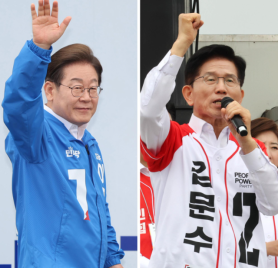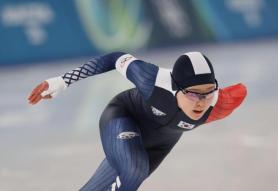
Editor’s Note: This article is the second in a series examining the leading presidential candidates and their positions on diplomacy, security, and North Korea.
SEOUL, May 16 (AJP) - As South Korea prepares for a pivotal snap election, Democratic Party candidate Lee Jae-myung is putting forward a foreign and security policy that contrasts sharply with his conservative rival Kim Moon-soo. At the center of Lee’s approach is a push for pragmatic diplomacy, a gradual shift toward peace on the Korean Peninsula, and a more balanced engagement with the world’s major powers.
Lee has repeatedly emphasized that diplomacy should serve the national interest and adapt to the realities of a changing global order. While reaffirming the importance of the United States–South Korea alliance, he has cautioned against an overly one-sided approach.
Instead, he argues for broadening South Korea’s diplomatic reach to include more strategic cooperation with China, Japan, and Russia. His so-called “New Asia Strategy” aims to restructure past outreach efforts like the Moon Jae-in administration’s New Southern and New Northern Policies to better fit current geopolitical dynamics.
Lee also advocates for closer ties with the Global South, pointing to emerging nations in Southeast Asia, Africa, and Latin America as important diplomatic and economic partners. This multipolar approach, he says, is necessary for securing South Korea’s long-term strategic autonomy.
On North Korea, Lee has called for a shift away from confrontation and toward phased engagement. His campaign envisions a gradual easing of military tensions, the restoration of inter-Korean dialogue, and the pursuit of denuclearization in step-by-step stages. He has pledged to pursue humanitarian exchanges such as family reunions and to resume cooperation projects aimed at building mutual trust.
Although Lee has not ruled out a strong national defense posture, he has rejected calls for tactical nuclear weapons or independent nuclear armament. Instead, he supports enhancing missile defense systems and maintaining deterrence through conventional capabilities within the framework of the U.S.–South Korea alliance.
In terms of defense reform, Lee is proposing a hybrid conscription system, what he calls a “selective volunteer service.” Under his plan, men who must fulfil their conscripted military service could choose between short-term conscription and longer-term professional service as non-commissioned officers or military specialists.
The goal, according to Lee, is to improve military efficiency and offer young people meaningful career paths. He has also pledged to expand the defense industry’s global competitiveness by setting up a dedicated export control tower and holding regular defense export strategy meetings led by the president.
Lee’s foreign policy vision centers on what he calls “realistic diplomacy based on national interest.” In a recent televised debate, he noted that even long-standing allies like the U, S. are turning inward with protectionist policies, arguing that South Korea needs to act in its own best interest while maintaining strong ties.
He pledged to launch an emergency task force on trade negotiations and to take a more proactive role in managing tensions with Washington on economic issues. “The U.S.–South Korea alliance remains a pillar of our diplomacy,” Lee said, “but we can’t afford to follow unilaterally. We need to manage relations with all major powers, including China, Russia, and even North Korea, practically and carefully.”
While many experts question the feasibility of reviving inter-Korean cooperation under current conditions, Lee maintains that diplomacy and gradual engagement are South Korea’s best path forward.
Copyright ⓒ Aju Press All rights reserved.




